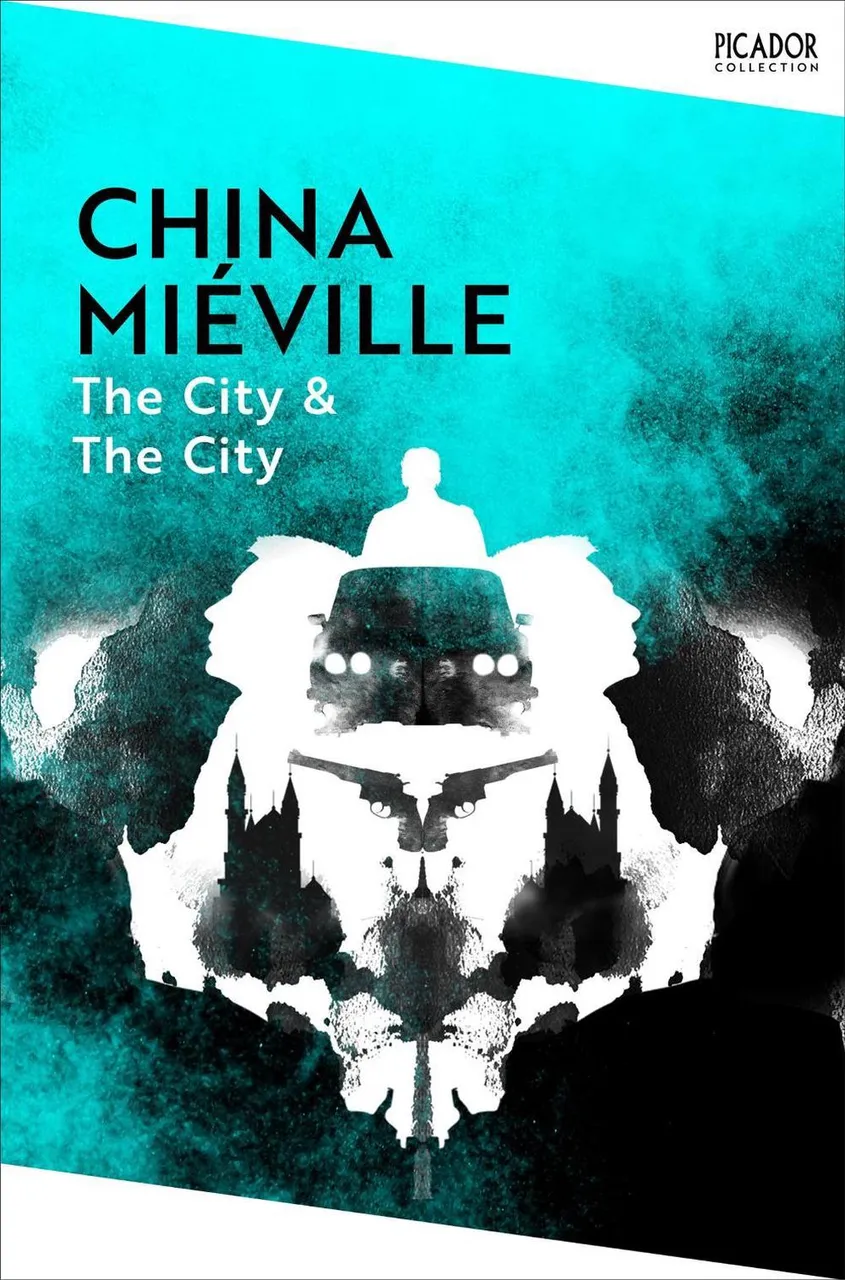I've finished it, and I need to warn you. The City and the City is not an easy book to read. Written by China Miéville, and first published in 2009 - It starts innocently enough for a book, and like many, it is best to go in blind, not knowing what to expect.
Or perhaps it isn't. This review will be as spoiler free as I can possibly muster, but I'll warn, this is very much a book where you're discovering all the way to the last pages.
But, as with all good stories, it starts at the beginning. The first few pages describe a murder scene. It's written in the first person, and you get to see through the eyes of the detective investigating the scene. It isn't this murder that makes the book interesting, but like lots of things, the circumstances surrounding it.
Here, I'm not just talking about who did the murder, who the murdered person was, what they did, their relationships with each other, but rather, the very setting itself.
The murder happens in a place called Besel, a city somewhere in Europe, alongside another city called Ul-Qoma. Between the cities, which physically occupy the same space, there's a hall. Passing through that hall changes which city you're in.
A street in Besel is a street in Ul-Qoma. They're in the same physical place, but each building might belong to one city or another. They each have distinct identity, sovereignty, and from one place, looking out to another, the other city is unseen.
Well, it is noticed, but then in a very Orwellian manner, the observer must unnotice what they've seen, or something called Breach happens. The Breach is a mysterious thing that will invoke justice, and take you away.
So when the murder victim is found in Besel, but it appears that the corpse lived in Ul-Qoma, there's quite a quandry for the detective Borlu to figure out. First, he tries to invoke breach, so he can go back to doing whatever detectives do when they're not solving crimes, but that probably wouldn't be a very interesting book.
As the investigation proceeds, you learn more about the dual cities, and while they may occupy the same physical space, the seeing and unseeing of things - and the different fashion, technological levels, affluence and other differences are constantly noticed, particular as Borlu crosses from Besel to Ul-Qoma to help investigate the murder from the other side.
What descends from here is a far-reaching conspiracy and a sense of ... no clarity as a fog (not literally, but it would have been a cool storytelling element) of intrigue descends upon and around Borlu.
Miéville is a gifted writer, and this is the first book of theirs I've read. Their style is incredibly sophisticated, and rich with short, impactful sentences.
The economy of language used in the text makes it at times tough to penetrate the true meaning of what is going on - but that in itself is a narrative element. There's thick, clear boundaries, and the ever present threat of Breach, above which no one dares to soar.
This is a difficult book to fathom, and the primer I've supplied here may help your personal interpretation, or it may entirely ruin the story. I'm not sure. I feel like this a book that would need to be read again and again, much like 1984, in order to fully absorb its complex setting and weaving intrigue.
What I do know is that... while this may not entirely be classified as science fiction, or indeed a murder-mystery style book, or a conspiracy filled political thriller - I do know that it lends interpretations in each and all of these genres.
It is a book that you need to be patient with. It meanders, it wanders, and it weaves through streets that are at once dim and glimmering, all at the same time. Depending on your perspective.
That perspective differs based on which city the viewer, the observer, the citizen is trained to see. This is touched upon in brief spurts through the books, but it is here where Miéville tale is at its most Orwellian, but in such a subtle manner.
That conditioning, that training, to have an awareness, but a disinterest in the "other city", without there appearing to be an otherwise totalitarian entity (beyond Breach - which no one knows anything about is explained somewhat in the complex exams tourists and immigrants must undertake before entering either city, drips of fascism.
Miéville manages to imagine a world where a split city (like say, East and West Berlin) doesn't have a wall, and has sects loyal to each on every street. A more detailed reading would provide subtext to civil war, dissident, disenfranchised individuals, and these are indeed found in his texts, and add careful colour and flavour to the world.
But - it is something that you must read to truly appreciate. I'm not sure that I fully digested the book myself, so complex its themes and characters, intrigue and mystery, but I am very glad that I got through all the way to the end.

This cover is a masterwork, too. It makes much more sense having now completed reading the book.
This book was also adapted into a TV-series - I haven't seen it.